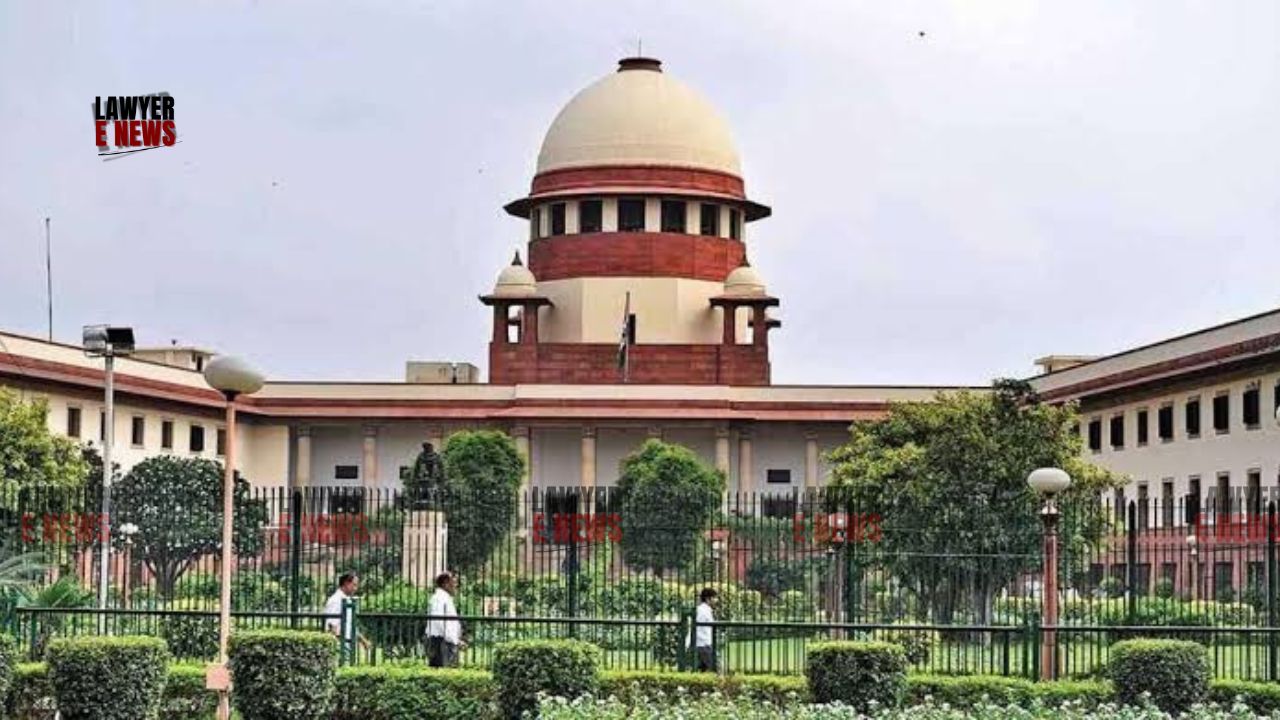-
by Admin
17 February 2026 4:27 AM



Blanket Ban on NIOS-Trained Teachers Is Legally Unsustainable— One-Time RTE Relaxation Scheme Cannot Be Undone by Misreading of Jaiveer Singh Judgment - Supreme Court of India decisively overturned the Calcutta High Court’s judgment that had disqualified candidates holding the 18-month D.El.Ed. diploma from the National Institute of Open Schooling (NIOS) from teacher recruitment processes. The Court reaffirmed that such a diploma is a valid qualification, provided it was obtained under the one-time relaxation scheme framed under the 2017 amendment to the RTE Act, and completed before 1st April 2019 by teachers in service as on 10th August 2017.
The Court ruled: “Any teacher who was in-service as on 10th August 2017 and who acquired the qualification of D.El.Ed. by way of the 18 months programme through NIOS prior to 1st April 2019 is a valid diploma holder and at par with any other teacher who has completed the 2 years D.El.Ed. programme.”
“Entire Scheme Was Designed to Protect In-Service Teachers from Disqualification and Dismissal”
The dispute arose when a recruitment notification dated 29th
September 2022 issued by the West Bengal Board of Primary
Education (WBBPE) triggered a legal challenge from a group of candidates who argued that NIOS-trained candidates should be excluded from the process on the ground that their training was only for 18 months, unlike the regular two-year diploma.
The Calcutta High Court, relying on the Supreme Court’s earlier decision in Jaiveer Singh v. State of Uttarakhand, accepted that contention and barred 18-month diploma holders from consideration. However, the apex court noted that such an interpretation completely misread the scope and intent of the Jaiveer Singh ruling.
“The High Court erred in not appreciating that the 18-month NIOS D.El.Ed. programme was a one-time window for in-service teachers. It put a blanket ban on all such candidates, contrary to what was held in Jaiveer Singh and further clarified in Viswanath.”
The Court pointed out that the Jaiveer Singh judgment never invalidated the diploma granted to teachers who were already working before August 2017 and who completed their NIOS training before the cut-off date of March 31, 2019.
“Recognition Order of 2017 Was Never Meant to Create Inferior Degrees — It Was a Compliance Mechanism to Save Jobs”
The Supreme Court emphasised that the NCTE’s recognition order dated 22nd September 2017 was passed to allow in-service teachers to comply with the newly imposed qualification requirements within a short window. It was never intended to create a separate or inferior class of diploma-holders.
“It is clear that the NCTE recognition order was issued so as to provide a one-time window to the teachers who were already working as on 10th August 2017. The duration of the programme was reduced from two years to 18 months to fit within the time left before the cut-off of 31st March 2019.”
“The entire scheme was for the purpose of providing a window to the in-service teachers... who would otherwise have faced dismissal.”
“Clarification in Viswanath Judgment Binds All — NIOS-Trained
Teachers Fully Eligible for Appointments and Promotions”
Referring to its own clarification dated 10th December 2024 in the case of Viswanath v. State of Uttarakhand, the Court reiterated: “We again clarify that the 18 months diploma obtained by such persons, who were in employment as on 10.08.2017 and who have completed the diploma course of 18 months, would be treated as valid diploma holders for the purpose of applying in other institutions or for promotional avenues.”
This clarification, the Court held, is binding and applicable to all authorities, and must be read together with the Jaiveer Singh ruling.
“High Court's Blanket Ban Was Contrary to Law and Facts — Validity of NIOS Diploma Reaffirmed”
Setting aside both the judgment of the learned Single Judge dated 29th February 2024 and the Division Bench judgment dated 24th July 2024, the Supreme Court concluded: “The impugned judgment and order of the High Court is not sustainable.”
“We direct the respondent-authorities to consider the candidature of such of the appellants who were in-service as on 10th August 2017 and who, on verification, are found to satisfy the eligibility criteria, and appoint them within a period of three months from today.”
Date of Decision: April 4, 2025
